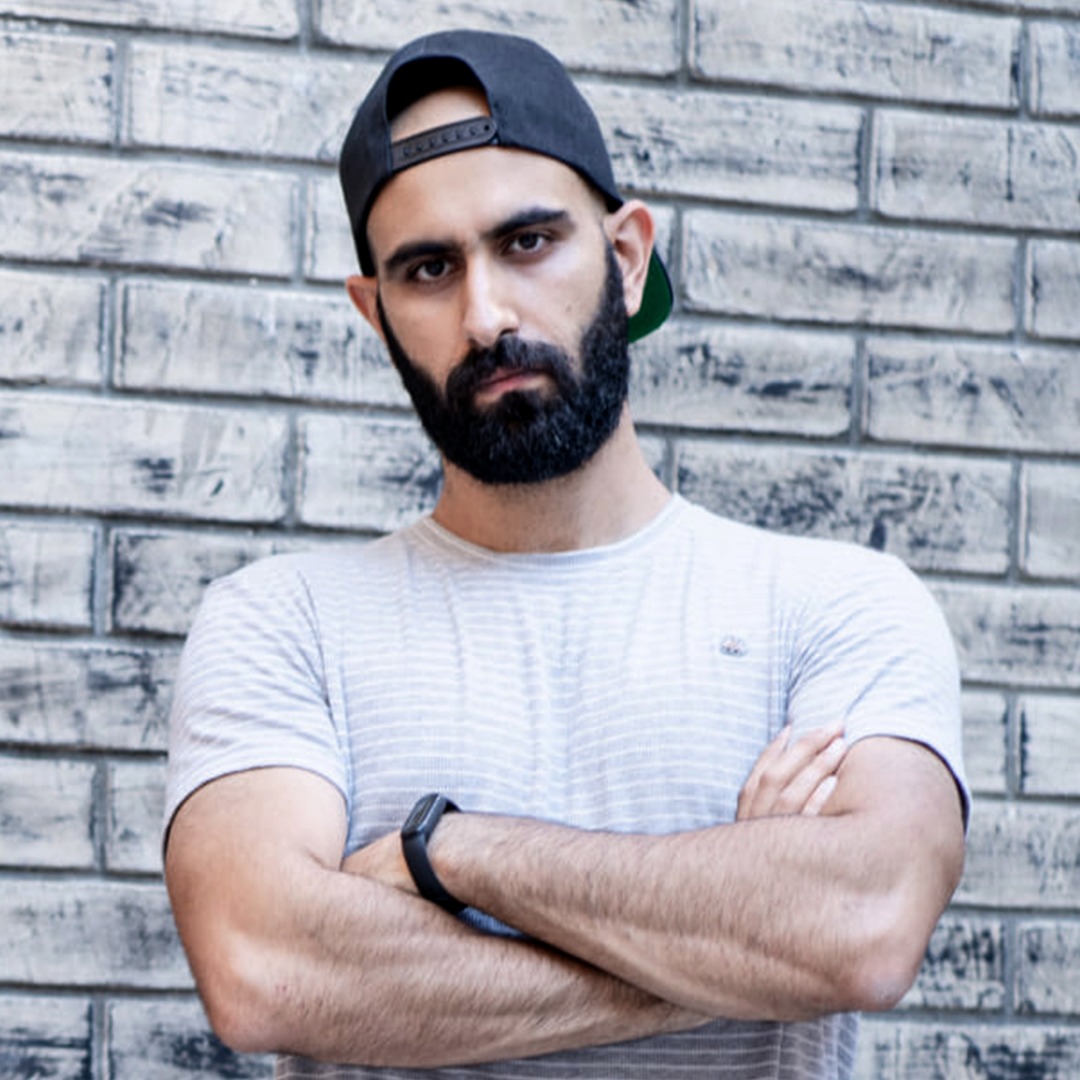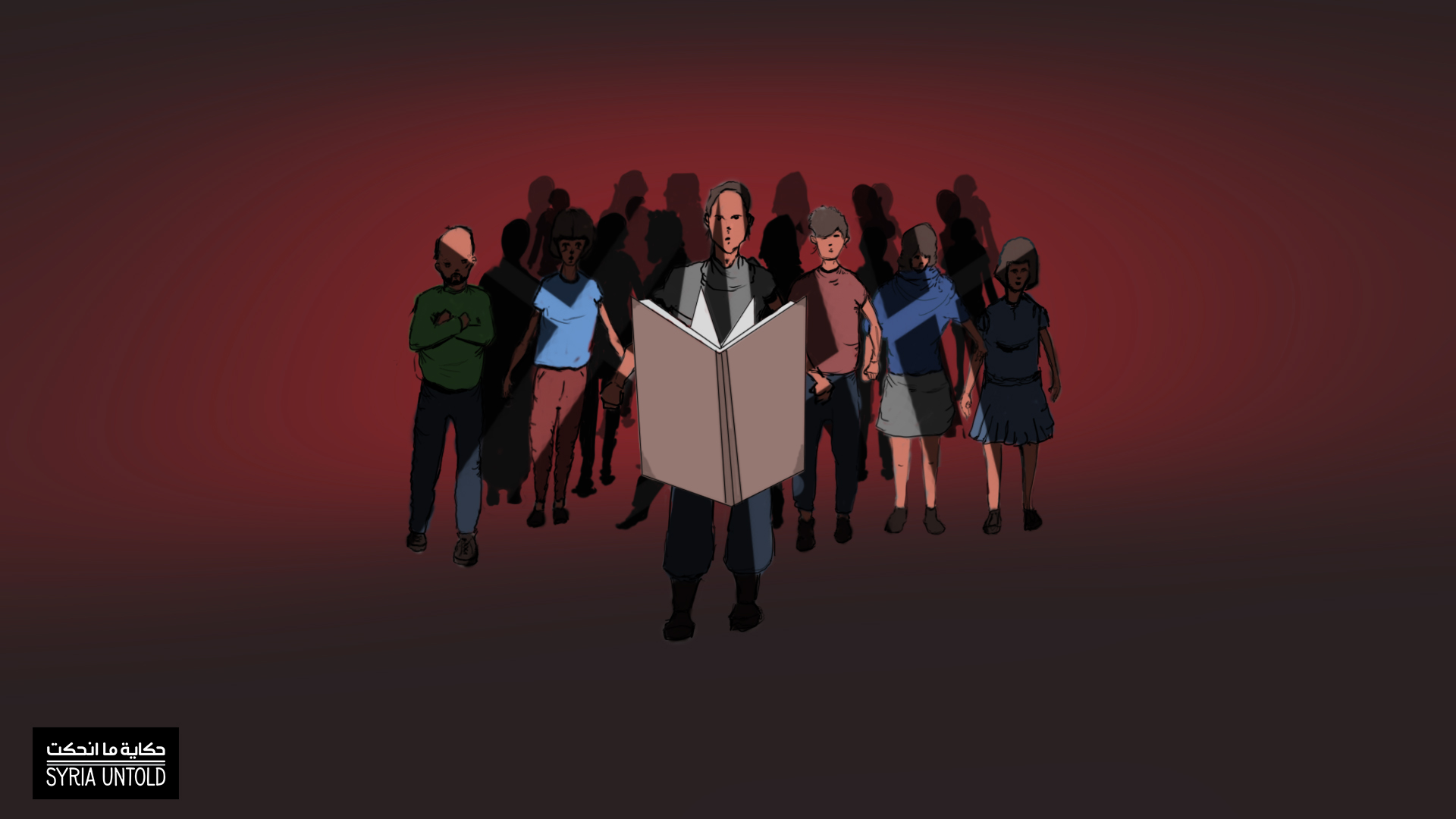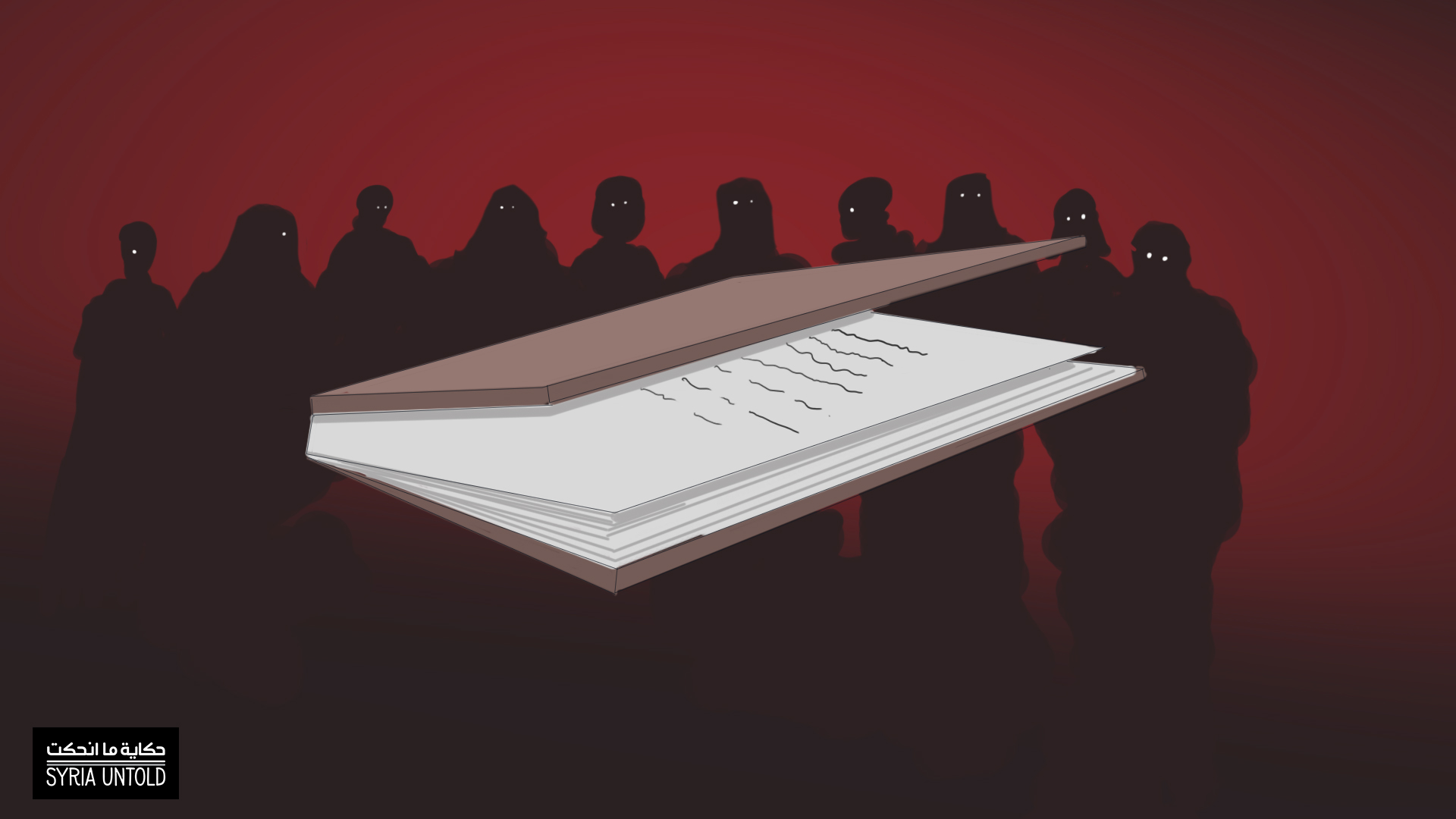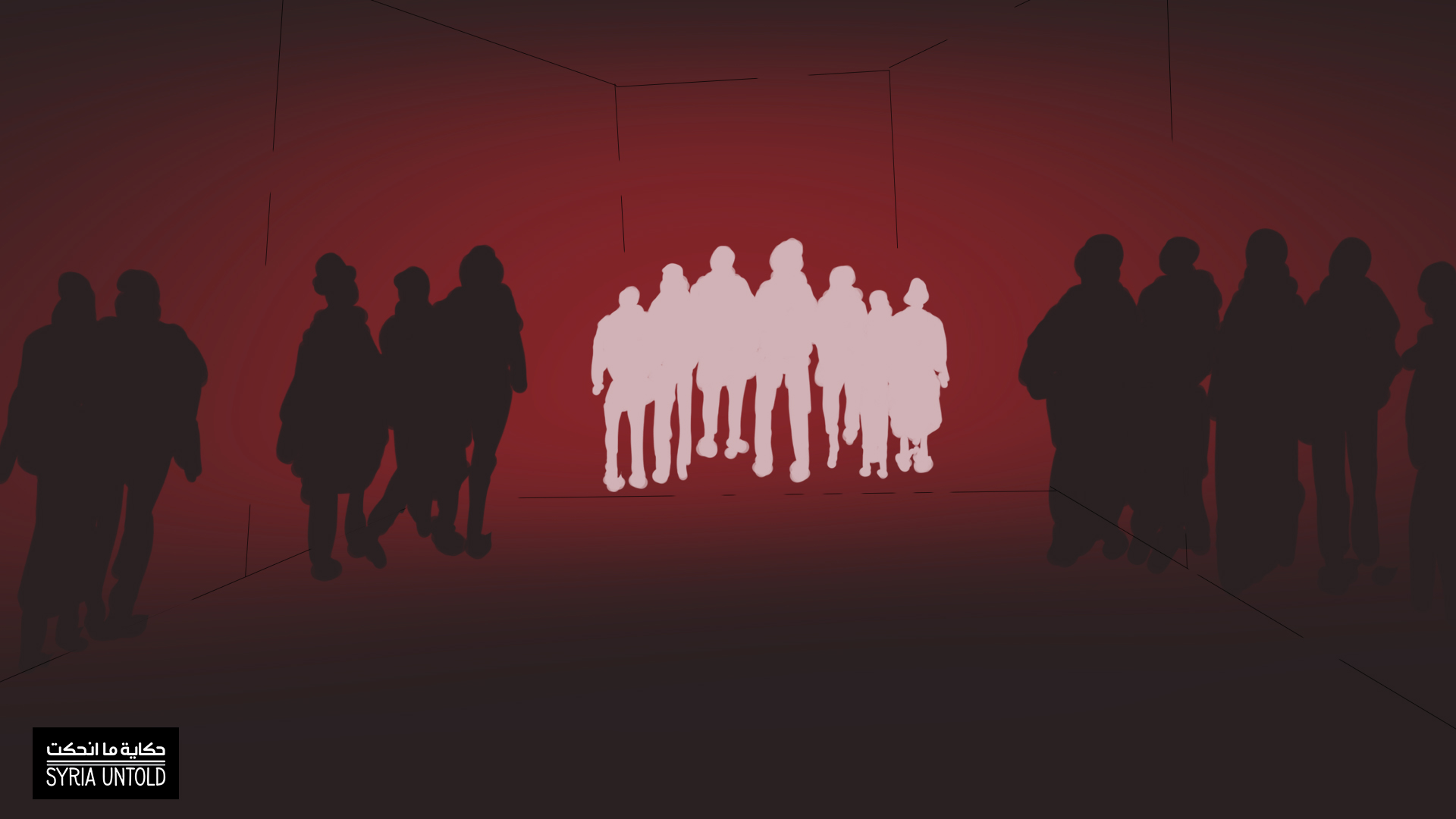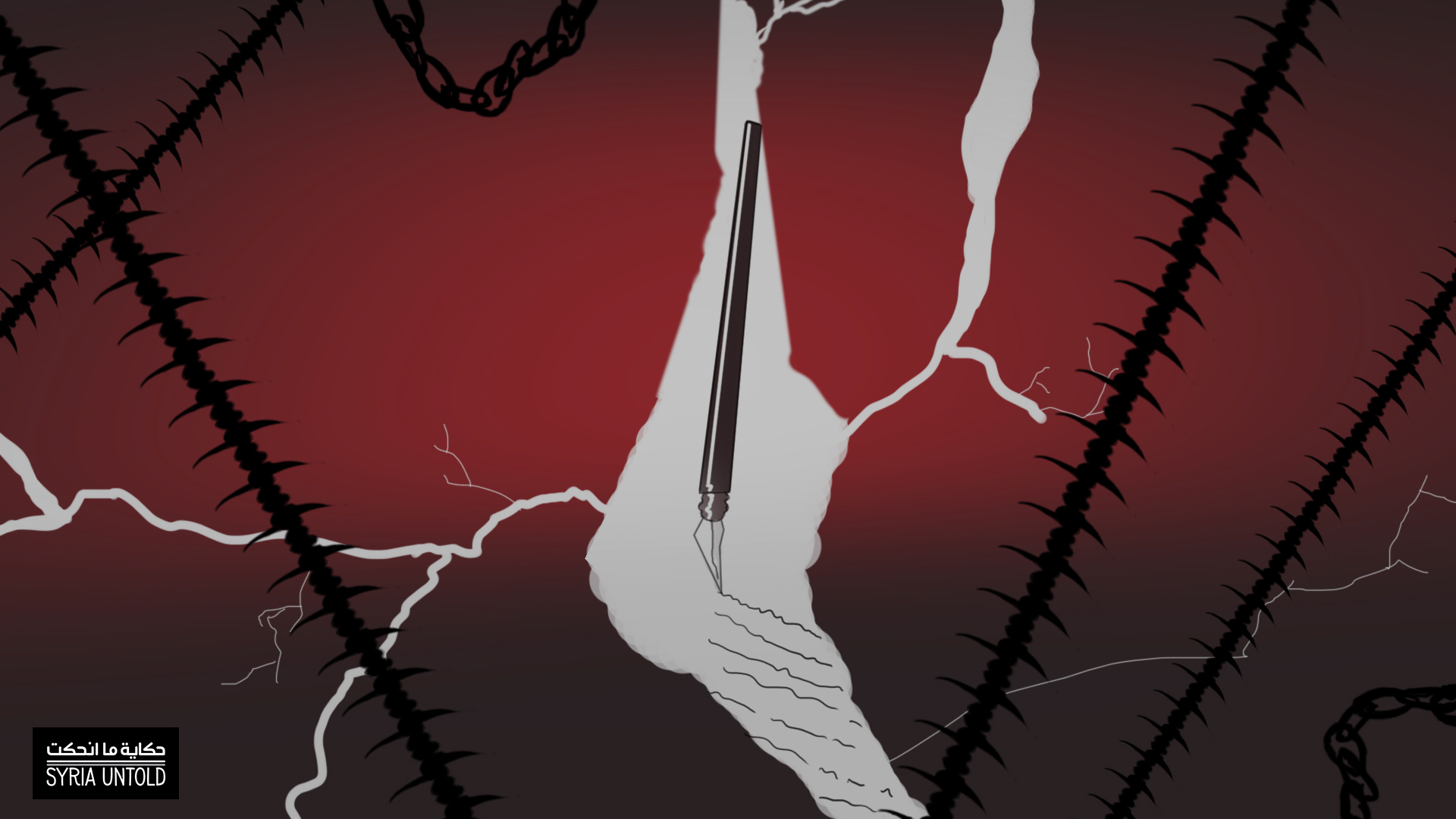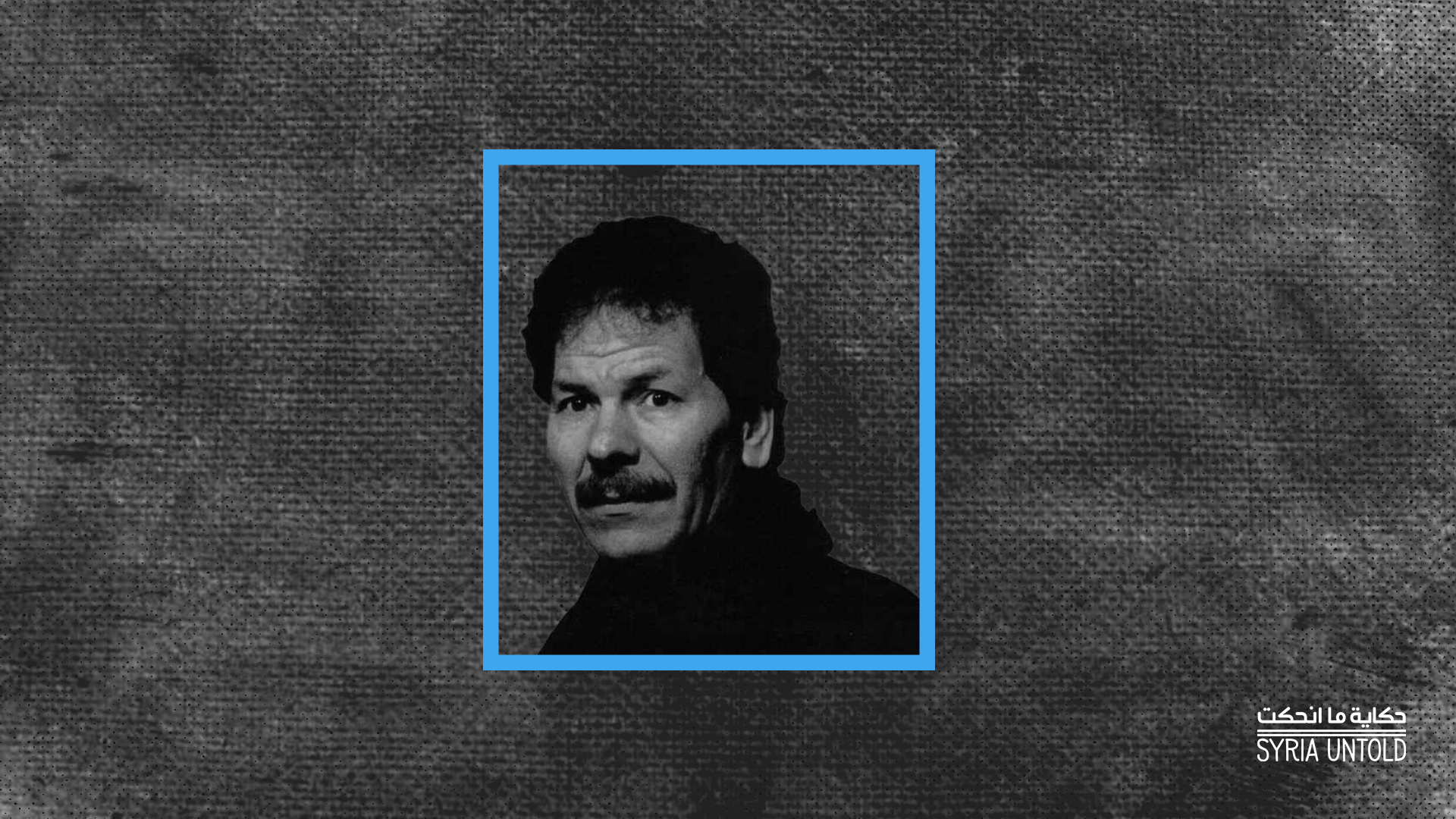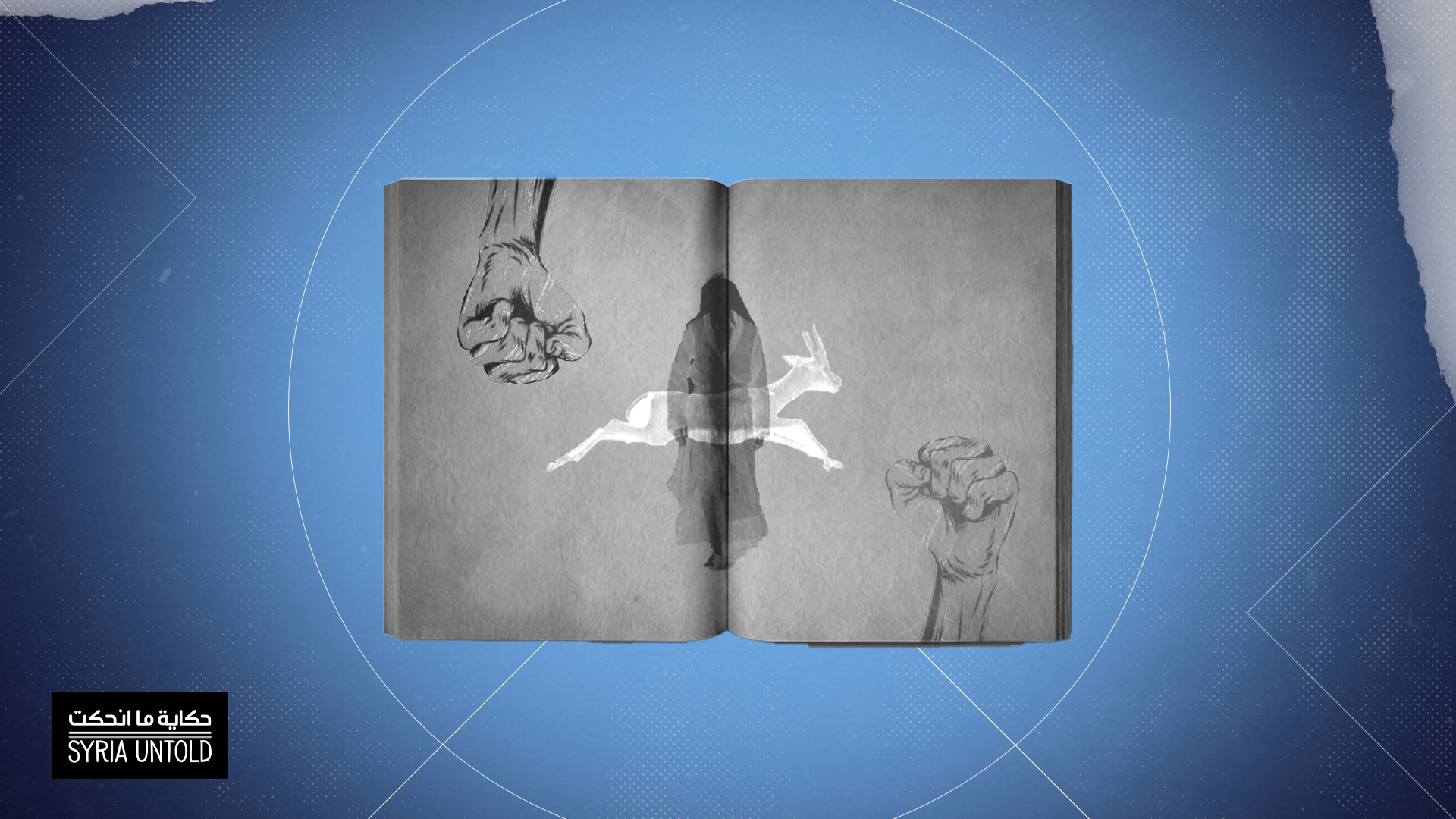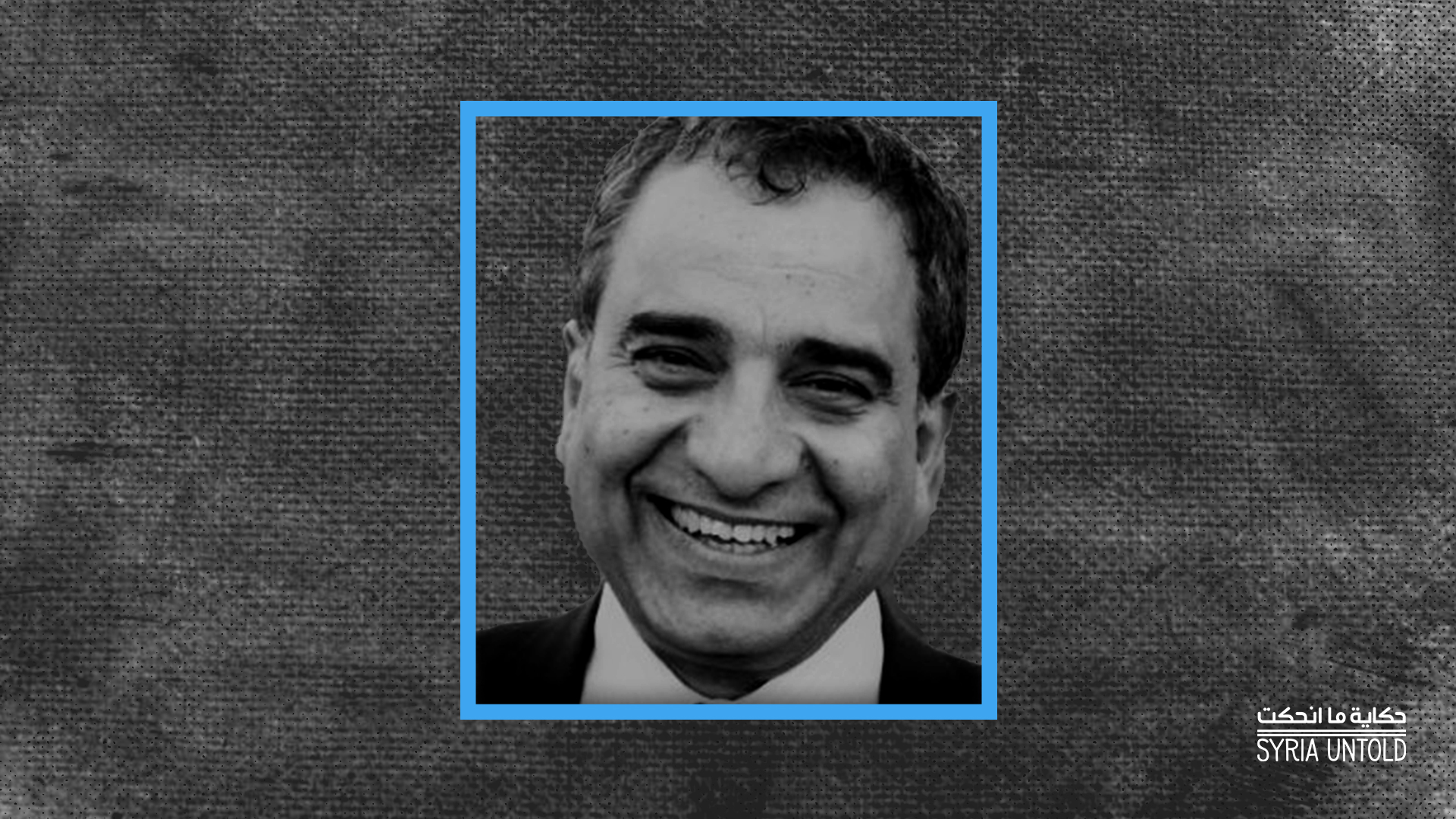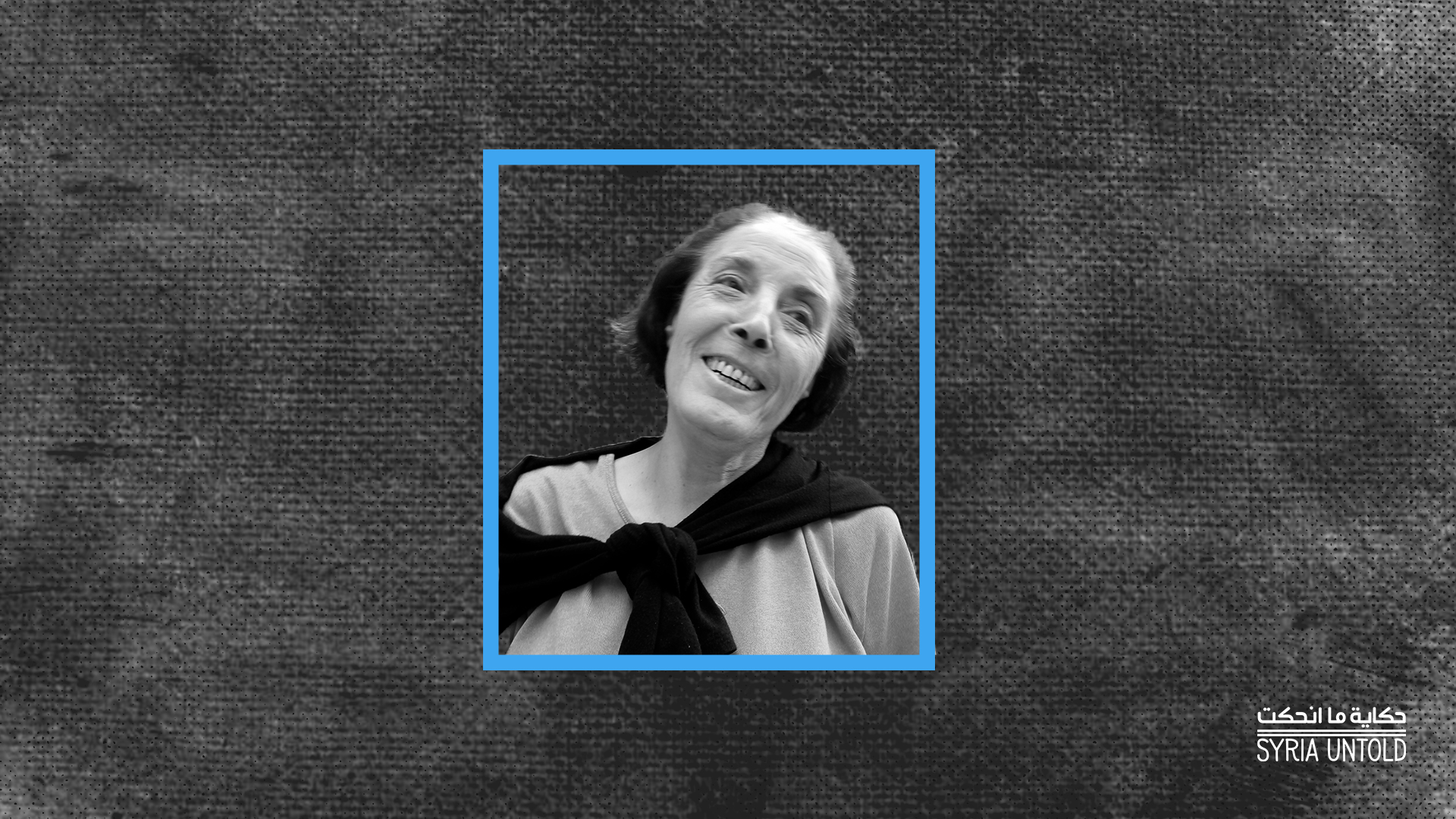SyriaUntold’s illustrator and multimedia editor Rami Khoury revisited Muhammad Dibo’s history of “the pamphlet,” a 1970s literary zine run by a friend group of Syrian poets and writers.
Rami’s picture story is below, with snippets from Muhammad’s original written piece.
Climb aboard the bus of his body
or wait for him at the next station
he is now accused of a murder
accused of destroying the bloodstream:
the first kiss is a bullet,
And the last bullet love.
Many Syrians are familiar with the politically-tinged love poem “Destruction of the Bloodstream” by Riyad Saleh Hussein. Few of them know, however, that this poem was published for the first time in the mid-1970s, in a tiny underground literary zine that never bore a name. Its founders, a group of leftist writers and political activists, agreed on calling it, simply, “al-korrasa,” Arabic for “the pamphlet.”
“Giving it a name would have restricted it to a certain identity, and we didn’t want anything to restrict our freedom,” Wael Sawah, one of the pamphlet’s founders, and a longtime writer and activist, tells SyriaUntold.
“We thought that giving the pamphlet a name would have led the authorities to ask about its licensing and affiliation, but in any case, this didn't stop the mukhabarat,” says Syrian poet Faraj Bayrakdar, who joined the pamphlet's editorial team and was later arrested along with the poets Riadh Saleh Hussein and Khaled Darwish because of it.
Ezzat, one of the pamphlet’s founders, remembers those years: “We were a group of friends with a stance that needed to be crystallized. We did not have a party. On a personal level, I didn't want to join any party. We were defying the existing parties and the authorities that had created a closed atmosphere. We didn't want to be like them.”
“We were activists publishing articles in official newspapers, but it was simultaneously clear to us that these media outlets were restricted in terms of creativity. Therefore, we were looking to break all restrictions and all kinds of censorship. I decided to no longer publish in any official media outlet,” Bayrakdar says.
Read Muhammad Dibo's full article here.


